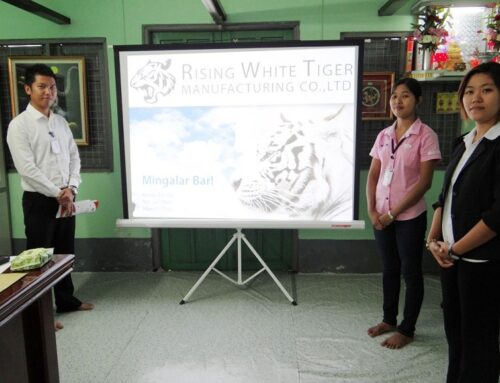U Win Aung, Chairman, Republic of the Union of Myanmar Federation of Chambers of Commerce and Industry (UMFCCI), discusses the organisation’s priorities for Myanmar’s private sector.

European Times: What is the history of the UMFCCI?
U Win Aung: Established in 1919, the UMFCCI is a founder member of the International Chamber of Commerce (ICC). I have personally been involved with the UMFCCI since 1994, having started out as an Executive Committee member, after which I moved on to the position of Vice President. Since 2011, I have been elected President of the UMFCCI. We now have 69 affiliated regional chambers under our umbrella, including specialised trade associations in Myanmar. Our 27,000 members consist of local and foreign companies, cooperatives and individuals.
European Times: What are the UMFCCI’s top priorities?
U Win Aung: Our primary goal is to act as a bridge between Government and the private sector. Our objective is that the voice of our business community be heard clearly and effectively by Government through the UMFCCI channels. We also contribute towards social and commercial laws that are enacted by the Parliament. As such, we are a hands-on kind of organisation that plays an important role in the legislative environment in which the private sector operates. The new Foreign Investment Law (FIL), for example, was a milestone for which UMFCCI made valuable contributions.
European Times: How does the new Foreign Investment Law benefit investors?
U Win Aung: This new law has created a more investor-friendly environment in Myanmar, while ensuring that the benefits of foreign investment reach the people of Myanmar, not simply an elite few. It opens up almost all sectors to foreign investment and includes incentives like a five-year exemption on corporate tax (tax holiday). Unlike in some other countries, even selected sensitive areas of the economy are open to foreign investment, a fact about which I believe that the international business community has been somewhat misinformed until now. Within this framework, international companies can have a share of up to 80% of the business, while 20% of the shareholding will have to go to local companies. We believe that this is a fair basis upon which to build a win-win situation for both domestic and international investors.
European Times: Much of the foreign investment in Myanmar up to now has been in extractive industries. Which sectors do you believe will hold the most potential for investment in the future?
U Win Aung: With the democratisation process in full swing, our people have great expectations of the private sector. This includes the creation of jobs and a more prosperous middle class. Corporate social responsibility has assumed utmost importance in the private sector worldwide, and that is not less true in Myanmar.
It is for this reason that we would like to see more investment in labour-intensive industries such as food processing, textiles, electronics parts and components, car spare parts, and others. Almost 90% of our natural resources are extracted, exported and processed elsewhere and then imported back into the country. This means that there is huge potential for businesses wishing to become involved in adding value to our resources. We especially need new manufacturing technologies and projects that build the skills and capacity of our people.
European Times: Why should European investors choose Myanmar?
U Win Aung: Firstly, of course, the EU has recently re-instated Myanmar to the EU’S Generalised Scheme of Preferences (GSP). This presents many advantages for investors looking to use Myanmar with its rich resources as a manufacturing hub and wishing to export finished products to the EU.
At the same time, Myanmar urgently needs to raise the standards of its own consumer market so that more goods and services are consumed locally. I would very much like to see the transfer of European consumer standards to Myanmar, and therefore encourage European investors to engage in joint ventures with local counterparts to create an environment for transfer of knowledge, standards and experiences from the EU to Myanmar.
Secondly, Myanmar urgently needs infrastructure and I see Europe capable of playing an important role in the upgrading of our present internal transportation, communication and energy power infrastructures. Without these cornerstones of development, the long-term sustainable growth of our economy will be impossible.
European Times: What are some of the biggest challenges Myanmar faces today?
U Win Aung: There is as yet a lack of understanding of the importance of corporate governance and efficient organisational structuring in the private sector. As such, the UMFCCI plays a leading role in exposing the local business community to capacity-building programmes, training seminars, and networking or business-matching events for entrepreneurs, for example. I am confident that, with time, Myanmar’s small and medium-sized companies will be able to build in their capabilities, and understanding of, these areas, as many of Myanmar’s larger companies have already done so.
European Times: What is your personal message to potential investors?
U Win Aung: For the benefit of our people, we urge you to invest in our country with a solid understanding of both our needs and your own. We are looking for companies with responsible business ethics that prioritise corporate social responsibility as a core element of their business. The UMFCCI is at your disposal to assist and support you in all of your endeavours.




